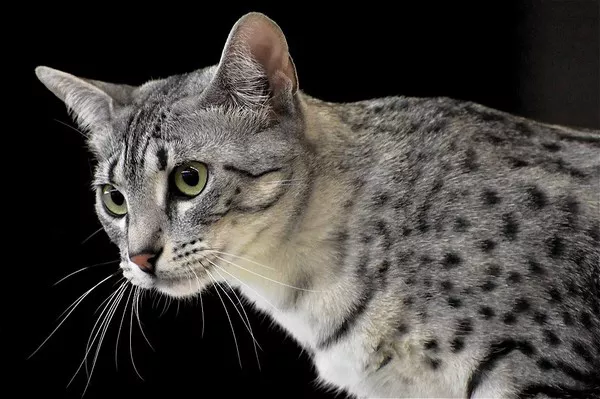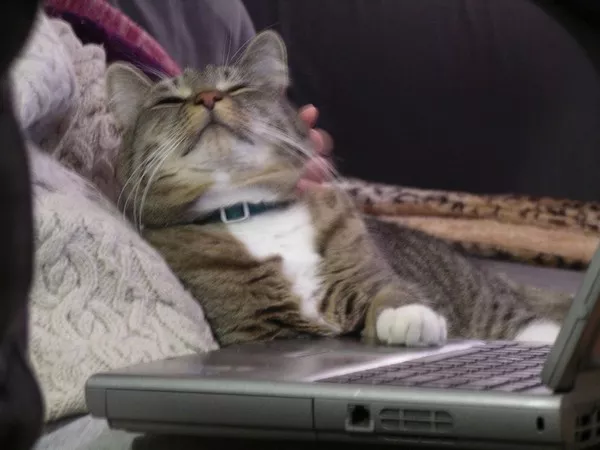The Egyptian Mau, with its striking appearance and playful personality, is a beloved breed that has captured the hearts of cat enthusiasts around the world. But what about their compatibility with dogs? Many potential pet owners may wonder whether Egyptian Maus can coexist harmoniously with canine companions. In this article, we will explore the dynamics between Egyptian Maus and dogs, as well as provide training tips for fostering a positive relationship between these two beloved pets.
Understanding the Egyptian Mau: Characteristics and Temperament
Before delving into their compatibility with dogs, let’s first take a closer look at the Egyptian Mau breed. Known for their distinctive spotted coat, large ears, and expressive eyes, Egyptian Maus are an ancient and intelligent breed with a playful and affectionate disposition.
Independent Nature: Egyptian Maus are known for their independent nature, which can sometimes be mistaken for aloofness. While they enjoy human companionship, they also appreciate having time to themselves for exploring and playing.
Active and Agile: As natural hunters, Egyptian Maus are highly active and agile cats. They enjoy engaging in physical activities such as climbing, jumping, and chasing toys, making them an ideal pet for households with ample space for exploration and play.
Affectionate and Loyal: Despite their independent streak, Egyptian Maus are also known for their affectionate and loyal nature. They form strong bonds with their human caregivers and enjoy spending quality time with them, whether it’s lounging on the couch or playing interactive games.
Assessing Compatibility: Egyptian Maus and Dogs
The compatibility between Egyptian Maus and dogs largely depends on the individual personalities of both pets, as well as their socialization and training from a young age. While some Egyptian Maus may get along well with dogs, others may prefer to be the sole pet in the household.
Early Socialization: Introducing an Egyptian Mau to a dog at a young age can help foster positive interactions between the two pets. Early socialization allows them to become familiar with each other’s presence and develop mutual respect and understanding.
Observing Body Language: Paying attention to the body language of both pets is crucial when introducing an Egyptian Mau to a dog. Signs of stress or discomfort, such as hissing, growling, or raised hackles, should be addressed promptly to prevent conflicts and ensure the safety of both pets.
Supervised Interaction: Initially, interactions between an Egyptian Mau and a dog should be supervised to prevent any potential conflicts or misunderstandings. Providing positive reinforcement, such as treats and praise, for calm and respectful behavior can help reinforce positive associations between the two pets.
Training Tips for Harmony: Egyptian Maus and Dogs
Training plays a vital role in fostering a harmonious relationship between Egyptian Maus and dogs. By teaching both pets basic obedience commands and promoting positive interactions, pet owners can help create a peaceful and cohesive household environment.
Basic Obedience Training: Both Egyptian Maus and dogs should undergo basic obedience training to establish clear boundaries and expectations within the household. Teaching commands such as “sit,” “stay,” and “come” can help prevent conflicts and promote cooperation between the two pets.
Positive Reinforcement: Using positive reinforcement techniques, such as treats, toys, and praise, can help motivate both pets to exhibit desirable behavior. Rewarding calm and respectful interactions between the Egyptian Mau and the dog can reinforce positive associations and strengthen their bond over time.
Gradual Introductions: When introducing an Egyptian Mau to a new dog or vice versa, gradual introductions are key. Start by allowing them to scent each other’s belongings and gradually progress to supervised interactions in a controlled environment. Patience and consistency are essential during this process.
Conclusion: Cultivating Harmony and Understanding
While Egyptian Maus and dogs may have different temperaments and communication styles, with proper socialization, training, and supervision, they can coexist harmoniously in the same household. By understanding the unique needs and personalities of both pets and taking proactive steps to promote positive interactions, pet owners can create a peaceful and enriching environment for their beloved companions. With patience, consistency, and plenty of love, Egyptian Maus and dogs can form lasting bonds that bring joy and fulfillment to both pets and their human caregivers.
FAQs:
1. Are Egyptian Maus good pets?
Egyptian Maus make wonderful pets for the right owner. They are intelligent, playful, and affectionate cats known for their striking appearance and loyal nature. However, they have a strong independent streak and may not be suitable for everyone. Potential owners should be prepared to provide plenty of mental and physical stimulation to keep these active and agile cats happy and fulfilled.
2. Do Egyptian Maus like to cuddle?
While Egyptian Maus can be affectionate and enjoy spending time with their human companions, they may not be the most cuddly of cats. They often prefer to show their affection through interactive play and companionship rather than prolonged cuddling sessions. However, individual preferences can vary, and some Egyptian Maus may enjoy cuddling with their owners on their own terms.
3. Can Egyptian Maus be left alone?
Egyptian Maus are independent cats that can generally tolerate being left alone for moderate periods. However, they do require mental stimulation and social interaction to prevent boredom and loneliness. Providing toys, scratching posts, and interactive play sessions can help keep Egyptian Maus entertained while their owners are away. It’s essential to ensure they have access to food, water, and a safe environment when left alone to ensure their well-being. Regular interaction and attention from their owners are also important for maintaining a strong bond with Egyptian Maus.

























